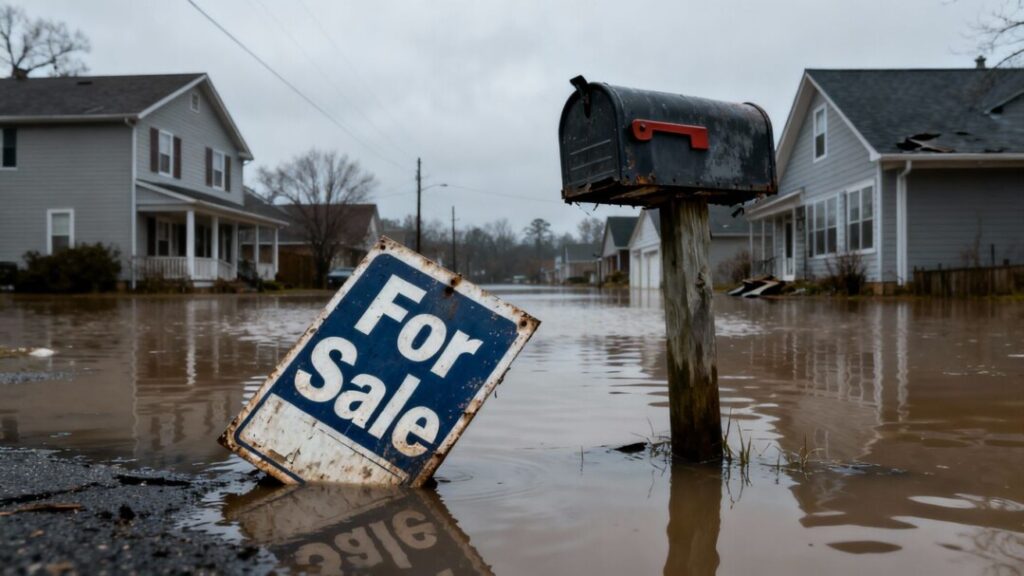A federal government shutdown has led to the suspension of the National Flood Insurance Program (NFIP), putting thousands of Florida real estate transactions at risk. This halt in coverage is causing significant concern for buyers, sellers, and real estate professionals, particularly in a state with high flood exposure.
Key Takeaways
- The National Flood Insurance Program (NFIP) has lapsed due to the government shutdown, preventing the issuance of new policies and renewals.
- Florida, with the highest number of NFIP policies nationwide, faces significant disruption to its housing market.
- Thousands of pending home sales could be delayed or canceled as buyers struggle to secure necessary flood insurance.
- While existing policies remain active, new policies and renewals are on hold, creating uncertainty for transactions.
- Private flood insurance is an alternative but is often more expensive and less available.
Impact on Florida’s Housing Market
Florida’s real estate sector is particularly vulnerable to the NFIP’s lapse. The state leads the nation in flood insurance policies, with nearly 1.8 million active policies accounting for about 18% of the national total. This reliance means that a significant number of pending home sales, estimated to be around 1,400 daily nationwide, are now in jeopardy. Lenders typically require flood insurance for mortgages in high-risk areas, and without the NFIP, many buyers are unable to close on their homes.
The NFIP and Its Crucial Role
The NFIP, managed by FEMA, is designed to reduce the impact of floods and provides essential coverage to over 5 million policyholders. It plays a critical role in the housing market, supporting approximately half a million home sales annually and contributing significantly to the U.S. economy. The program’s suspension highlights its importance in maintaining market stability, especially in flood-prone regions.
Challenges for Buyers and Sellers
Buyers in flood-prone areas now face significant hurdles. If their policy expires during the shutdown, they could experience a lapse in coverage. While existing policies remain in effect until their renewal date, and claims will still be paid as long as FEMA has sufficient funds, new transactions are stalled. For those needing immediate coverage, private flood insurance is an option, but it comes with a substantially higher cost—potentially thousands of dollars more per year compared to the federally subsidized NFIP rates. This financial burden could price some buyers out of the market or force them to seek alternative, potentially less secure, solutions.
Broader Economic Concerns
Beyond the immediate impact on home sales, the shutdown’s effects ripple through the economy. The National Association of Realtors estimates that the halt in NFIP operations could affect around 1,300 closings daily nationwide. Furthermore, the lack of economic data, such as the jobs report, due to the shutdown could influence Federal Reserve decisions on interest rates, potentially keeping mortgage rates higher than they might otherwise be. Real estate professionals are advising clients to explore options like extending escrow periods or carefully reviewing private insurance policies while urging Congress to pass a resolution to end the shutdown.
### Sources
- Government shutdown threatens thousands of Florida home sales, HousingWire.
- Shutdown freezes new federal flood coverage for Florida homes, Miami Herald.
- Shutdown causes National Flood Insurance to lapse, threatening Florida home sales, South Florida Agent Magazine.
- Government shutdown impacts Central Florida home sales and flood insurance, WESH.
- Buyers Could Face Delays During Shutdown, | Florida Realtors.


